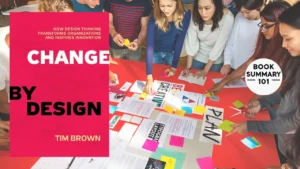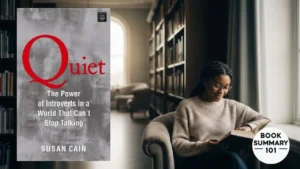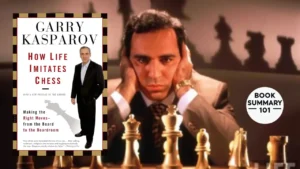Why Regret Isn’t the Enemy You Think It Is
We’ve all had those moments, right? The ones we wish we could go back and change. Maybe it’s a relationship you let slip away, a career move you didn’t take, or even a simple missed opportunity. For years, “no regrets” has been the slogan – a mindset that encourages us to live boldly, to look forward, and to leave our mistakes in the dust. But what if our regrets are more than just baggage? What if, as Daniel Pink argues in his book The Power of Regret: How Looking Backward Moves Us Forward, our regrets are actually some of our greatest tools for growth?
In this insightful book, Pink flips the script on regret, showing us that instead of shunning it, we should embrace it. He believes that regret is a universal and deeply human emotion that, when approached correctly, can be a source of inspiration, learning, and progress. The book is a guide on how to reframe regret, see it differently, and use it as a stepping stone for a richer, more fulfilled life.
The book on amazon 👉 The Power of Regret 📚
How Regret Changed Lives
Daniel Pink doesn’t just talk about regret in theory; he brings it to life through stories of real people who’ve experienced the powerful pull of “what if” and turned that feeling into meaningful change. Let’s dive a little deeper into a few of these inspiring stories and see how they moved beyond regret to reshape their lives.
1. The Entrepreneur’s Missed Opportunity
Imagine being at the crossroads of an incredible business opportunity – a chance to invest in a little-known tech company that a friend had pitched to you. At the time, the entrepreneur in Pink’s story had just started a family and was balancing multiple financial commitments, so he decided to play it safe and pass on the opportunity. Years down the line, he watched that company, now a globally recognized brand, skyrocket in value, transforming early investors into millionaires almost overnight.
The regret he felt was a mixture of frustration and “if only” thoughts that nagged him constantly. But after years of kicking himself, he decided to channel that regret into a driving force. He started to reflect on his decision-making process, realizing that his choice was influenced by a fear of risk. Instead of allowing his regret to paralyze him, he took it as a lesson in courage. Today, he’s a successful entrepreneur with his own thriving business. By using his missed opportunity as a guide, he now actively seeks out new ventures and potential investments, always reminding himself to weigh the potential upside rather than just the risks. His story reminds us that regret doesn’t have to be an anchor; it can be a catalyst for bolder and more courageous decisions in the future.
“The foundation of a good life is not the absence of regret. It’s the ability to learn and grow from it.”
2. The Parent Who Didn’t Say “I Love You” Enough
In another powerful story Pink shares, we meet a father who, now in his seventies, is burdened with a heavy regret: not showing enough affection to his children while they were growing up. As a younger man, he’d always thought actions spoke louder than words, and that providing for his family was enough. But as his children moved out, established their own lives, and grew increasingly distant, he began to feel the pang of missed chances to express love and nurture deeper connections.
With age and self-reflection, he came to see that he had unwittingly kept his emotions under wraps, leaving his children uncertain about the depth of his love. His regret weighed on him, but instead of letting it drive a wedge further between him and his kids, he decided to act. He started writing letters, pouring his feelings into words he’d never said, and slowly worked to rebuild trust and openness. His kids, initially surprised, began to respond, and over time, their relationships grew stronger. Inspired by his story, Pink notes how our regrets can actually serve as a roadmap for changing behavior. This father’s journey is a reminder to seize every opportunity to share how we feel with the people we love – there may be no perfect time, but the right time is now.
3. The Employee Who Wished They’d Spoken Up
This story touches on a common regret that many of us can relate to: the missed chance to use our voice. Pink introduces us to a young professional, early in her career, who found herself in an important meeting with senior leadership. She had ideas and insights she felt could improve the project they were discussing, but instead of speaking up, she sat silently, nervous that her input might be dismissed or judged as naive.
After the meeting, as she watched her suggestions unfold through the ideas of others, she realized how much she’d held herself back. The regret of not contributing – and seeing the impact her ideas could have had – became a pivotal moment in her career. Rather than allowing this regret to haunt her, she decided to reshape her approach to speaking up. She worked on building confidence, learning to articulate her ideas clearly and assertively. Over time, she became known for her valuable contributions, moving up to a leadership position herself.
What makes her story so engaging is the way it shows that regrets over missed opportunities don’t have to be regrets forever. This experience became her motivation to help others, particularly younger employees, find their voice in meetings and to be confident in the value they bring. Today, she runs workshops on self-advocacy and encourages people to view regret as a lesson in courage rather than a source of shame.
4. The College Student Who Took the “Safe” Route
Another relatable story Pink shares is that of a young college student who played it safe and chose a major she wasn’t particularly passionate about, pressured by family expectations and the allure of stability. While she graduated with honors, she felt disconnected from her chosen field. Her true interests lay in creative arts, but the thought of pursuing such an unpredictable path felt daunting and risky.
Years after graduation, she found herself unfulfilled, working in a job that left her feeling empty. Her regret over not pursuing her true passion lingered, and she often wondered what could have been. But instead of just fantasizing about an alternate path, she decided to take small steps toward her dream. She began taking art classes on weekends, joined a local artist group, and eventually started selling her work. Slowly, she turned her regret into a side hustle, and today, she’s a full-time artist.
Her journey reminds us that even if we feel we’ve missed our chance, it’s never too late to pivot and honor our passions. Regret can serve as a reminder of the roads we still have time to explore, and that sometimes, a small step is all it takes to transform a “what if” into a reality.
“Regret can be a powerful guide, reminding us that it’s never too late to pursue what truly matters. Even the smallest step toward our passions can transform a ‘what if’ into a reality.”
These stories are just a few of the powerful examples Daniel Pink shares in The Power of Regret. They illustrate that while regret can be painful, it’s also incredibly instructive. It offers us insight into our deepest values, shows us what truly matters, and can propel us forward in new and meaningful ways. Instead of running from our regrets, Pink suggests, we should embrace them, reflect on them, and use them as a tool to build a richer, more intentional life.
Why Read The Power of Regret?
If you’ve ever felt held back by your past mistakes or found yourself wishing things had gone differently, this book is for you. Pink’s approach is refreshingly compassionate and human – he’s not here to tell you to ignore your feelings or “just get over it.” Instead, he encourages you to lean in, reflect, and ask yourself, “What can I learn from this?”
The book offers a roadmap for understanding and managing regret in a way that empowers rather than discourages. It’s filled with research, engaging stories, and actionable strategies that will help you look at your own regrets with fresh eyes. By the end, you may find yourself feeling grateful for the lessons hidden in those “what if” moments.
4 Tips for Turning Regret into a Positive Force
Here are four actionable tips from The Power of Regret to help you harness regret and turn it into a tool for growth:
1. Reframe Regret as a Lesson, Not a Failure
Instead of seeing regret as a sign you’ve failed, view it as feedback. Ask yourself, “What is this regret trying to teach me?” By shifting your mindset, you can focus on growth and make better decisions moving forward.
2. Categorize Your Regrets
Pink identifies four core types of regrets:
- Foundation Regrets (e.g., not saving money or prioritizing health)
- Boldness Regrets (e.g., not taking risks or pursuing dreams)
- Moral Regrets (e.g., acting against your values or harming others)
- Connection Regrets (e.g., losing touch with loved ones)
Understanding which category your regret falls into can help you uncover what truly matters to you and what steps to take next.
3. Turn Regret into Action
Regret is only negative if it holds you back. Use it as a springboard to take action. For example, if you regret not reaching out to a friend, send that text today. If you regret not taking a bold career step, start planning a way to pivot now.
4. Practice Self-Compassion
Be kind to yourself. Pink emphasizes that everyone experiences regret – it’s part of being human. Instead of beating yourself up, treat yourself as you would a friend. Acknowledge the regret, learn from it, and move forward without lingering in self-blame.
These tips help transform regret from a burden into an opportunity for reflection and growth. Ready to put them into practice? Let’s chat!
Join the Conversation!
Regret is something we all experience, yet we rarely talk about it openly. Reading The Power of Regret can spark meaningful conversations and change the way you see your own life story. So, what about you? Are there any regrets in your past that have helped you grow or taught you something valuable?
Share your thoughts or your story in the comments below, and let’s discuss how has regret shaped your path forward? remember we can’t change the past, we can choose how we respond to it, and sometimes, that makes all the difference.
The book on amazon 👉 The Power of Regret 📚



